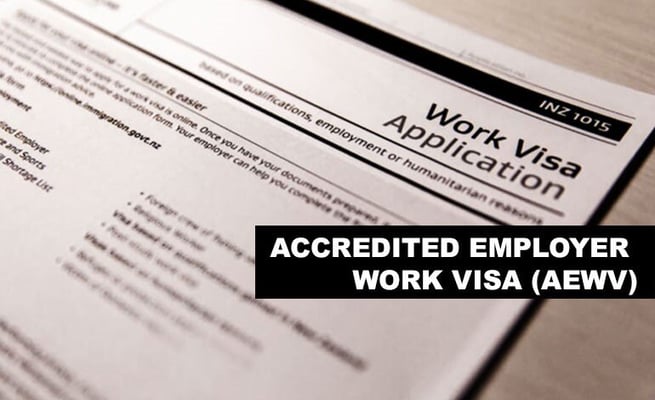Exploitation concerns plague accredited employer work visa

Recent reports have highlighted incidents of exploitation among migrant employees who have come to New Zealand under Accredited Employer Work Visa (AEWV).
Instances of workers being charged money for these visas, subsequent dismissals, assignment of low-level tasks and other forms of mistreatment have raised serious concerns about the effectiveness of the visa process in protecting migrant workers’ rights.
Commenting on such cases, Teji Kaur of Kaur Immigration says, “The original purpose of the accreditation process was to curb migrant exploitation and encourage the employers to hire more New Zealanders. However, it appears that the system is being abused and has veered away from its intended purpose.”

According to recent news reports, Immigration New Zealand (INZ) has taken serious action against offending companies while conducting their compliance checks. One company had its accredited employer status revoked, while another had its accreditation suspended following an investigation.
Kaur highlights the importance of implementing more checks and thorough scrutiny measures for accredited employers.
The INZ had set a target of conducting checks on about 15 per cent of all accredited employers annually. However, it was revealed these checks had only begun in April of this year.
As of mid-June, the INZ had completed post-accreditation checks for a mere 257 out of over 23,000 accredited employers. This raises concerns about the limited scrutiny and oversight being applied to ensure compliance with regulations, say advisors.
RNZ reported INZ officials as saying they received a total of 694 complaints related to accredited employers. Of these complaints, 40 per cent involved allegations of migrant exploitation, while about 20 per cent suggested potential instances of immigration fraud.
Kaur also says there are cases where accredited employers are ‘hiring’ family members and relatives from overseas. She adds since these candidates meet the technical requirements, there is not much INZ can do except to do post-accreditation checks.
“From what anecdotal evidence I have, the misuse of the accredited employer visa process appears to be more prevalent in industries like hospitality, construction, and farming, which heavily rely on low-skilled labour,” Kaur says.
Another concern is the broad scope of accreditation, which allows even businesses such as dairy shops to become accredited employers and hire workers from overseas, say advisors.
The lack of stringent checks in place opens the door for potential abuse, as entities with limited oversight can bring in workers without sufficient scrutiny.
Kaur says though it has become easier to bring overseas employees through AEWV, there is limited scope for employees with low-level of skills to gain residency.
“INZ has also introduced changes to AEWV, set to take effect in November 2023. The maximum continuous stay period will be limited to five years, requiring visa holders to leave New Zealand for at least 12 months after this period. However, those on a pathway to skilled residence may be eligible for a further AEWV if they meet specific criteria.”
The INZ also recently announced a simplified path to residency for skilled workers.
Kaur explains, “From October 9, 2023, you will need six points to apply for Skilled Migrant Category (SMC) Resident Visa. All migrants applying for the SMC resident visa may have a job or a job offer in New Zealand with an accredited employer, earning at least the median wage.
“Points-based eligibility criteria based on factors such as occupational registration, qualifications, and work experience in New Zealand will also be introduced.”
Kaur says the changes are in the right direction, and hopefully, they will enhance New Zealand’s competitiveness in the employment market and attract more talent to the country.

Recent reports have highlighted incidents of exploitation among migrant employees who have come to New Zealand under Accredited Employer Work Visa (AEWV).
Instances of workers being charged money for these visas, subsequent dismissals, assignment of low-level tasks and other forms of mistreatment...
Recent reports have highlighted incidents of exploitation among migrant employees who have come to New Zealand under Accredited Employer Work Visa (AEWV).
Instances of workers being charged money for these visas, subsequent dismissals, assignment of low-level tasks and other forms of mistreatment have raised serious concerns about the effectiveness of the visa process in protecting migrant workers’ rights.
Commenting on such cases, Teji Kaur of Kaur Immigration says, “The original purpose of the accreditation process was to curb migrant exploitation and encourage the employers to hire more New Zealanders. However, it appears that the system is being abused and has veered away from its intended purpose.”

According to recent news reports, Immigration New Zealand (INZ) has taken serious action against offending companies while conducting their compliance checks. One company had its accredited employer status revoked, while another had its accreditation suspended following an investigation.
Kaur highlights the importance of implementing more checks and thorough scrutiny measures for accredited employers.
The INZ had set a target of conducting checks on about 15 per cent of all accredited employers annually. However, it was revealed these checks had only begun in April of this year.
As of mid-June, the INZ had completed post-accreditation checks for a mere 257 out of over 23,000 accredited employers. This raises concerns about the limited scrutiny and oversight being applied to ensure compliance with regulations, say advisors.
RNZ reported INZ officials as saying they received a total of 694 complaints related to accredited employers. Of these complaints, 40 per cent involved allegations of migrant exploitation, while about 20 per cent suggested potential instances of immigration fraud.
Kaur also says there are cases where accredited employers are ‘hiring’ family members and relatives from overseas. She adds since these candidates meet the technical requirements, there is not much INZ can do except to do post-accreditation checks.
“From what anecdotal evidence I have, the misuse of the accredited employer visa process appears to be more prevalent in industries like hospitality, construction, and farming, which heavily rely on low-skilled labour,” Kaur says.
Another concern is the broad scope of accreditation, which allows even businesses such as dairy shops to become accredited employers and hire workers from overseas, say advisors.
The lack of stringent checks in place opens the door for potential abuse, as entities with limited oversight can bring in workers without sufficient scrutiny.
Kaur says though it has become easier to bring overseas employees through AEWV, there is limited scope for employees with low-level of skills to gain residency.
“INZ has also introduced changes to AEWV, set to take effect in November 2023. The maximum continuous stay period will be limited to five years, requiring visa holders to leave New Zealand for at least 12 months after this period. However, those on a pathway to skilled residence may be eligible for a further AEWV if they meet specific criteria.”
The INZ also recently announced a simplified path to residency for skilled workers.
Kaur explains, “From October 9, 2023, you will need six points to apply for Skilled Migrant Category (SMC) Resident Visa. All migrants applying for the SMC resident visa may have a job or a job offer in New Zealand with an accredited employer, earning at least the median wage.
“Points-based eligibility criteria based on factors such as occupational registration, qualifications, and work experience in New Zealand will also be introduced.”
Kaur says the changes are in the right direction, and hopefully, they will enhance New Zealand’s competitiveness in the employment market and attract more talent to the country.










Leave a Comment